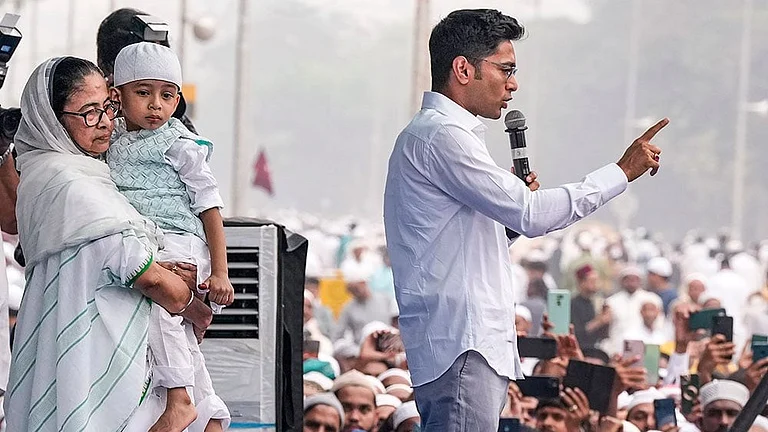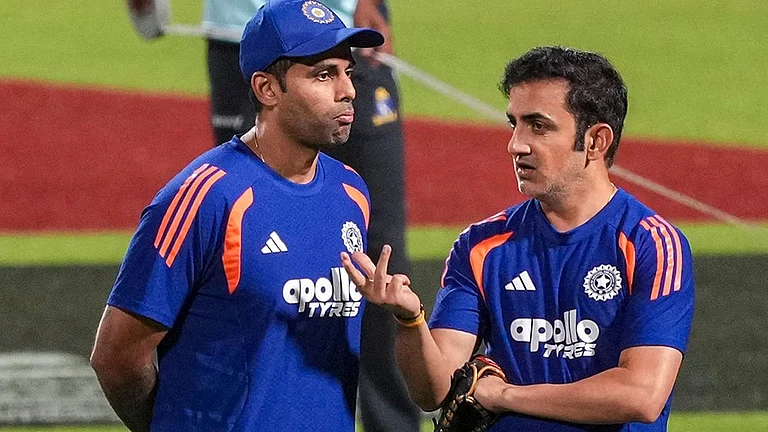Once the tough decision to shift the IPL abroad was taken, BCCI members began to whisper that home minister P. Chidambaram wasn’t ever interested in allowing the showcasing of Tamasha Cricket II. They say the UPA government was apprehensive of forfeiting the terror card it had shrewdly wrested from the BJP; that an attack on any of the IPL teams could have sunk the UPA’s chance of returning to power. Some even appreciate this position. As one of them told Outlook, "An attack could have indeed impacted the election. But Chidambaram should have been upfront. He should have told us right at the beginning that the IPL can’t be held this year."
Yes, it’s true; Chidambaram and the UPA created hurdles that proved insurmountable even for a behemoth like the BCCI. Mark the Maharashtra government’s flip-flop over the IPL, initially agreeing to hold it and then reversing the decision. It miffed agriculture minister Sharad Pawar as he had informally told BCCI members about the Maharashtra government’s readiness to hold the IPL. In pique, the former BCCI boss put his formidable weight behind the IPL’s decision to shift to South Africa.
The IPL drama over the last fortnight illustrates vividly the entwining of politics, cricket and global terror. The script of this drama was written way back on 26/11. Following the outrage over the Mumbai carnage, the UPA government mounted tremendous international pressure on Islamabad to secure an unprecedented admission from it—that part of the Mumbai conspiracy was hatched in Pakistan. This diplomatic victory was remarkable as it had been achieved without mobilising troops, in sharp contrast to the BJP-led NDA’s muscular endeavour post-Parliament attack in 2001. The UPA’s diplomatic triumph silenced the BJP on the security issue, barring the stray, grating remarks of men such as Narendra Modi.
Even in ordinary circumstances, the UPA wouldn’t have been keen to risk this diplomatic gain. But whatever feeble hope there was of staging the IPL was blown to smithereens the moment terrorists in Lahore attacked the Sri Lankan cricket team. Cricket’s vaunted ‘innocence’ was shattered—it became as ‘legitimate’ a target as any. The IPL could have come in the crosshair of Islamists wanting to prove to the world that India is as dangerous a place as Pakistan. And an actual attack would have surely become a factor electorally, as the BCCI official admitted.
This is an area fraught with consequences in a country where every encounter is scrutinised, whether it’s fake or real and where every terror incident spawns innumerable conspiracy theories. The suspicion in the political class runs deep. When a string of bombs exploded in Ahmedabad last year, BJP leader Sushma Swaraj thought it was a Congress conspiracy, aimed at diverting the nation’s attention from the cash-for-votes episode in the confidence motion held then. Perhaps the Congress too entertains such delusional fantasies about its rivals.
Islamists apart, India bristles with enraged groups in search of targets. Do not forget the Hindu radicals of Nanded, Maharashtra, who were killed when the bombs they were making accidentally exploded. You have Col P.S. Purohit and Pragya Singh Thakur triggering blasts to target Muslims—which, ironically, were blamed on the beleaguered community. In this vitiated political atmosphere, the IPL could have been entangled in the Great Games of the polls, even spilling blood. And nobody could have figured out who was playing whose game.

























